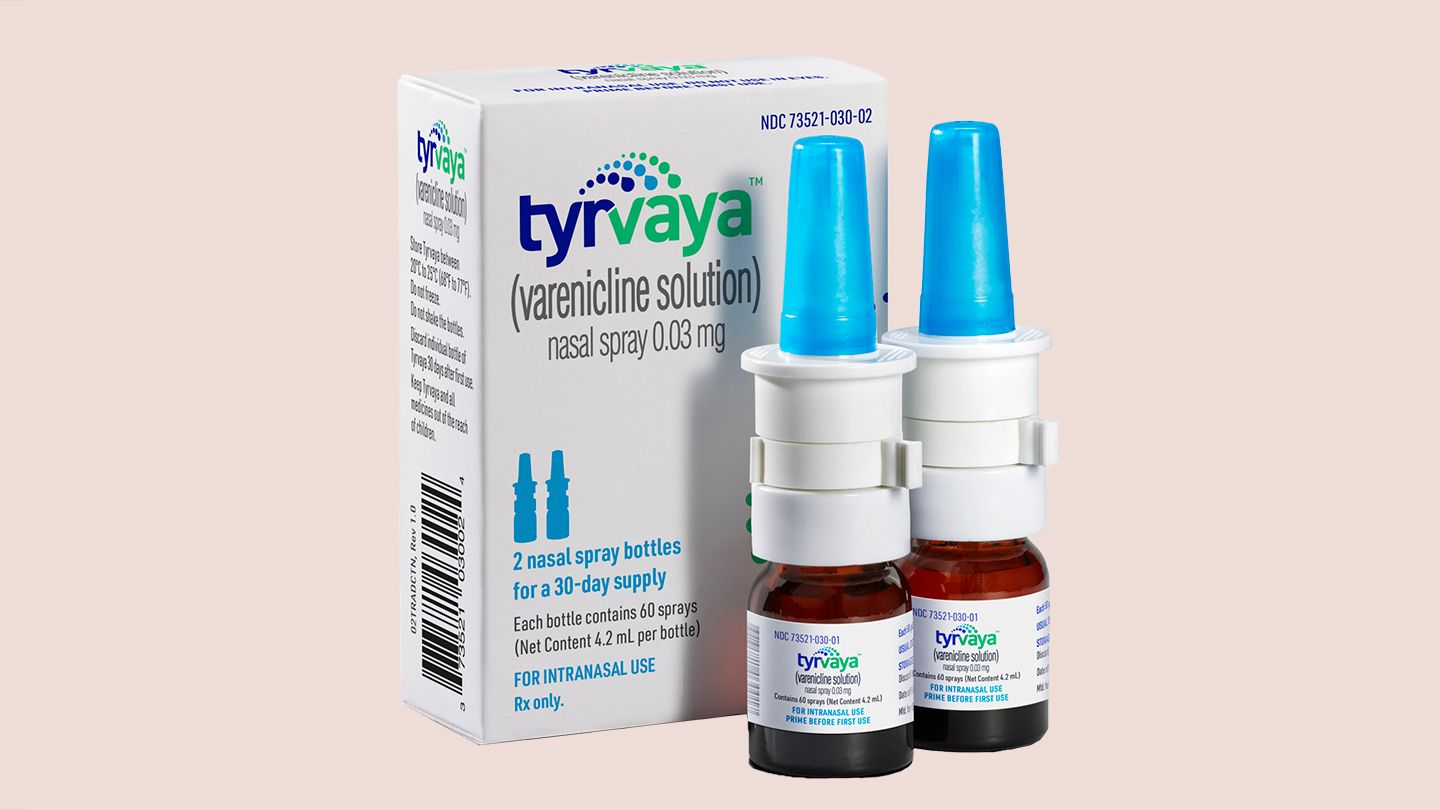Understanding Coughs and Why They Happen
Coughing is your body's natural reflex to clear your airways of mucus and irritants. Coughs can be the result of:
Colds and Flu
Viruses are the most common cause of coughs. The flu, common cold and other respiratory viruses like RSV can trigger coughing as your body tries to expel germs.
Allergies
Inhaled allergens like pollen, pet dander and dust cause the release of histamines which irritate the throat and prompt coughing.
Dry Air
Dry, cold winter air can dry out the throat and airways, leading to an annoying dry cough.
Asthma
Asthma causes swelling in the airways which narrows breathing passages. Coughing helps open up the airways.
GERD
Stomach acid that backs up into the throat due to reflux can trigger coughing. This is known as gastroesophageal reflux disease or GERD.
Smoking
Chemical irritants in cigarettes, vaping and smoke trigger coughs as the body tries to expel the foreign agents.
Types of Coughs
Coughs can be categorized into different types:
Wet / Chesty Coughs
These coughs produce mucus or phlegm. Theyre typically due to colds, flu, bronchitis and pneumonia where excess mucus develops.
Dry Coughs
These non-productive coughs dont bring up phlegm or mucus when you cough. They can be caused by allergies, asthma, cold air or viral infections.
Barking Coughs
Barking coughs are harsher sounding. They often occur with croup, an upper respiratory infection in children. Barking coughs can also arise with whooping cough.
Nighttime Coughs
Coughing more at night can indicate asthma or GERD. Lying down allows for mucus buildup and throat irritation.
When to See a Doctor
See your doctor if your cough:
Lasts > 3 Weeks
Coughs lingering more than 3 weeks may indicate a chronic condition like asthma, bronchitis or pneumonia needing treatment.
Produces Yellow, Green or Bloody Mucus
Colored phlegm signaling infection requires medication like antibiotics to clear bacteria or viruses.
Associated Shortness of Breath
Difficulty breathing with cough may be a sign of pneumonia or other lower respiratory issue needing medical intervention.
Worsens with Activity
Coughs exacerbated by exercise may indicate asthma or COPD requiring prescription inhalers or therapy.
Disrupts Sleep
Chronic disruptive coughing at night could indicate GERD, asthma or sinus drainage issues needing treatment.
Treatment for Temporary Cough Relief
For cough relief at home, you can try:
Cough Suppressants
Over-the-counter cough medicines with dextromethorphan suppress the cough reflex. But avoid in children under age 6.
Expectorants
Expectorants like guaifenesin loosen mucus so its easier to cough up. They provide relief for productive coughs.
Cough Drops
Throat lozenges can temporarily soothe coughs by lubricating the throat withingredients like menthol, honey and glycerin.
Nasal Saline Spray
Salt water nasal sprays hydrate dry nasal passages and help reduce cough triggeringpost-nasal drip by washing away mucus and allergens.
Humidifier
Using a humidifier adds moisture back into dry indoor air, which can help suppress coughing.
Honey
Honey coats and soothes irritated throat tissues, providing relief from coughing.
Home Remedy Onion Honey Pot for Coughs
A simple onion honey pot utilizing just 2 ingredients can bring relief for cough symptoms. Heres how to make it at home:
Ingredients
- 1 medium yellow onion
- 1/4 cup honey
Instructions
1. Peel and slice the onion into rings, separating them.
2. Place onion rings in a small bowl or jar.
3. Pour honey over the onions until they are completely covered.
4. Cover bowl and let mixture sit for at least 1 hour, or preferably overnight to allow flavors to meld.
5. When ready to use, take 1-2 teaspoons as needed for cough relief.
6. Store extra onion honey syrup in an airtight container in the refrigerator for up to 1 week. Discard if it turns cloudy or moldy.
How It Works
Onions contain quercetin, a potent anti-inflammatory flavonoid antioxidant. Quercetin inhibits histamine release, which suppresses coughing. Onions also contain sulfur compounds that stimulate mucus flow.
Rich in antioxidants, raw honey coats the throat, easing irritation that triggers coughs. It also acts as a mild natural cough suppressant.
Together, the medicinal properties of raw onion and honey provide multifactorial relief for cough symptoms.
Tips for Relief
- Take the onion honey syrup as needed for coughs rather than continuously to avoid overuse.
- For children over 1 year old, mix 1 teaspoon onion honey with warm water or herb tea.
- The syrup can be consumed by the spoonful or added to hot tea with lemon for an onion honey cough elixir.
- Pair with rest, hydration and salt water gargling to soothe coughs holistically.
Precautions
- Not recommended for babies under 1 year due to risk of infant botulism from honey.
- Those with onion or garlic allergies should avoid.
- Inform your doctor if cough persists longer than 1 week or worsens despite home treatment.
Honey Lemon Ginger Tea
This warming herbal tea combines the soothing powers of honey, lemon and ginger to quiet coughs:
Ingredients
- 2 cups water
- 1 inch piece fresh ginger, peeled and thinly sliced
- 1 tablespoon honey
- Juice from 1/2 lemon
Instructions
1. In a small saucepan, bring the water to a boil over high heat.
2. Add the sliced ginger and let steep 5 minutes.
3. Remove from heat and stir in lemon juice and honey until dissolved.
4. Drink warm, sipping slowly. Can store chilled and reheat as needed for coughs.
How It Helps
- Gingerols in ginger have anti-inflammatory effects to soothe irritated throat.
- Honey coats throat and reduces cough urge.
- Lemon provides vitamin C and helps loosen mucus.
- Staying hydrated keeps mucus thin.
- Warm liquid eases respiratory symptoms.
Salt Water Gargle
Gargling with warm salt water can help relieve coughs by reducing throat irritation. It draws out mucus and moisturizes tissues.
Ingredients
- 1/2 teaspoon salt
- 1 cup warm water
Instructions
1. Dissolve salt in the warm water until completely mixed.
2. Take a small sip and gargle for 15-30 seconds before spitting out.
3. Repeat gargling 2-3 times, ensuring full contact with back of throat.
4. Gargle every 2-4 hours as needed to relieve coughing.
How It Helps
- Salt water draws out thick mucus coating the throat.
- It helps reduce swelling and irritation.
- Hydrates mucus membranes.
- Loosens mucus secretions to make coughs more productive.
Marshmallow Root Tea
The mucilage in marshmallow root makes it an excellent demulcent for soothing coughs. It coats and lubricates irritated tissues.
Ingredients
- 1 tablespoon dried marshmallow root
- 1 cup boiling water
Instructions
1. Using a tea ball or strainer, steep marshmallow root in boiling water for 10 minutes.
2. Drink while warm, slowly sipping the thick mucilaginous liquid.
3. Drink 2-3 cups daily as needed to relieve coughs.
How It Helps
- The mucilage forms a protective film over throat tissues.
- Soothes irritation and inflammation.
- Lubricates the throat and reduces cough reflex.
- Also contains antimicrobial tannins.
Propolis Throat Spray
Propolis is an antimicrobial, anti-inflammatory resin collected by bees. Propolis throat spray can suppress coughs with its germ fighting and soothing properties.
Ingredients
- Propolis tincture or extract
Instructions
1. Find a premade propolis spray containing propolis tincture diluted with water.
2. Or add 1 teaspoon propolis extract to 1/3 cup water in a spray bottle.
3. Shake well before each use.
4. Spray 3-5 squirts to the back of the throat every 2-4 hours as needed for coughs.
How It Helps
- Propolis is antibacterial and antifungal to fight infection.
- It contains anti-inflammatory bioflavonoids.
- Soothes mucus membranes in the throat.
- Anesthetic properties reduce throat irritation and cough reflex.
Thyme Tea
Thyme contains antimicrobial thymol used in cough medications. Fresh or dried thyme makes a soothing hot tea to calm coughs.
Ingredients
- 1 teaspoon fresh or dried thyme leaves
- 1 cup boiling water
Instructions
1. Place thyme leaves in a cup and pour over boiling water.
2. Steep for 10 minutes, then strain.
3. Sweeten with a little honey if desired.
4. Slowly sip the tea while warm. Drink up to 3 times per day.
How It Helps
- Thymol has cough suppressing and antimicrobial effects.
- Soothes mucus membranes in the throat and chest.
- Has antispasmodic action to reduce bronchial spasms causing coughs.
- Breaks up chest congestion.
Slippery Elm and Licorice Root Tea
Slippery elm bark and licorice root make an excellent duo for coating and soothing sore, irritated throats to relieve coughs. Their demulcent properties provide relief without suppressing the cough reflex.
Ingredients
- 1 tablespoon slippery elm bark powder
- 1 teaspoon chopped licorice root
- 2 cups boiling water
Instructions
1. Using a tea strainer, steep slippery elm and licorice root in boiling water for 10 minutes.
2. Drink while warm, sipping slowly. Can drink up to 3 times daily.
How It Helps
- Slippery elm coats and protects sore throat tissues.
- Licorice root has soothing anti-inflammatory properties.
- Together they reduce throat irritation that triggers coughing.
Boswellia and Turmeric Tea
Boswellia and turmeric are Ayurvedic herbs renowned for their anti-inflammatory properties. Combined, they act to suppress coughs related to inflamed throats and airways.
Ingredients
- 1/2 teaspoon ground turmeric
- 1/2 teaspoon boswellia powder
- 1 cup hot water
- Honey to taste
Instructions
1. Combine turmeric and boswellia powders.
2. Add to a cup of hot (not boiling) water. Stir well.
3. Add honey as a natural cough soother. Stir and drink warm.
4. Drink up to 3 times daily to relieve coughs.
How It Helps
- Turmeric contains curcumin to reduce inflammation.
- Boswellia has anti-inflammatory boswellic acids.
- They relieve coughs caused by inflamed throat, bronchial tubes and lungs.
- Honey soothes the throat.
Fresh Pineapple Juice
Pineapple juice contains the enzyme bromelain, known for its anti-inflammatory effects helpful for suppressing coughs.
Ingredients
- 1 cup fresh pineapple chunks
- 1/2 cup water
Instructions
1. Blend pineapple chunks with water until smooth.
2. Strain the juice through a mesh sieve, pressing out pulp.
3. Drink pineapple juice once daily to reduce coughing.
How It Helps
- Bromelain reduces inflammation in respiratory airways.
- It helps thin mucus secretions in the lungs and sinuses.
- May suppress coughing by decreasing prostaglandin levels.
- Vitamin C boosts the immune system to help your body fight infection.
Soothing Coughs Naturally
Coughs
FAQs
How do you make an onion honey pot?
Slice 1 medium onion into rings and place in a jar. Cover the onions completely with 1⁄4 cup of honey. Let sit for 1 hour or overnight before using. Take 1-2 teaspoons as needed for coughs.
How does onion honey help coughs?
Onions contain antioxidants that reduce inflammation and stimulate mucus flow. Honey coats and soothes the throat. Together they can suppress coughs.
Can I give onion honey to my child?
Children over 1 year can take 1 teaspoon onion honey mixed with warm water or tea. Under 1 year avoid due to infant botulism risk from honey.
How often should you take onion honey for coughs?
Take 1-2 teaspoons of onion honey as needed to control coughs, rather than continuously. Maximum 3-4 times daily for short-term relief.
What are other natural cough remedies?
Other natural options include honey lemon tea, marshmallow root tea, salt water gargles, thyme tea, slippery elm, licorice root tea, ginger tea, and pineapple juice.
Disclaimer: This article is for informational purposes only and does not constitute medical advice. Always consult with a healthcare professional before starting any new treatment regimen.
Related Coverage
Onion honey packs a punch against colds with anti-inflammatory, antimicrobial and throat-soothing properties. Learn how to make and take this sweet and savory DIY remedy....
Placing cough drops in hot tea makes an easy, convenient home remedy for coughs and sore throats. Learn how to maximize the benefits of vapor, menthol, and more....
Tamiflu side effects include nausea, dizziness, headache, and rare reactions. Get tips to ease symptoms and when to call doctor....
Relieve sinus congestion and open clogged nasal passages with effective home remedies like steam, hydration, saltwater rinses, sprays, aromatherapy oils and more....
Steamy, aromatic baths can temporarily provide congestion and cough relief via essential oils, herbs and other natural decongestants. Learn soothing bath remedies....
Drinking adequate water provides tremendous benefits including healthier skin, improved digestion, weight loss, detoxification, and increased energy levels....
Frigid winds and air can provoke painful, aching ear discomfort when working out in winter weather. Learn what causes sore ears post-exercise in the cold and how to prevent future earaches....
Is it safe to use Flonase and NyQuil together for a stuffy nose? Get the facts on combining these medications and learn other fast ways to relieve congestion....
Daytime cold and flu symptoms like sore throat, fever, aches, and fatigue can make it hard to function. Learn how to manage symptoms, treat at home, and know when to see a doctor....
DayQuil can temporarily relieve a sore throat caused by a cold or flu. Its combination of pain relief, cough suppression, and decongestion provides short-term symptom relief....









